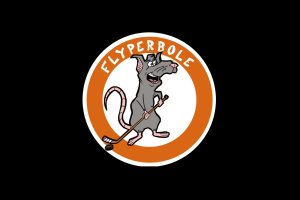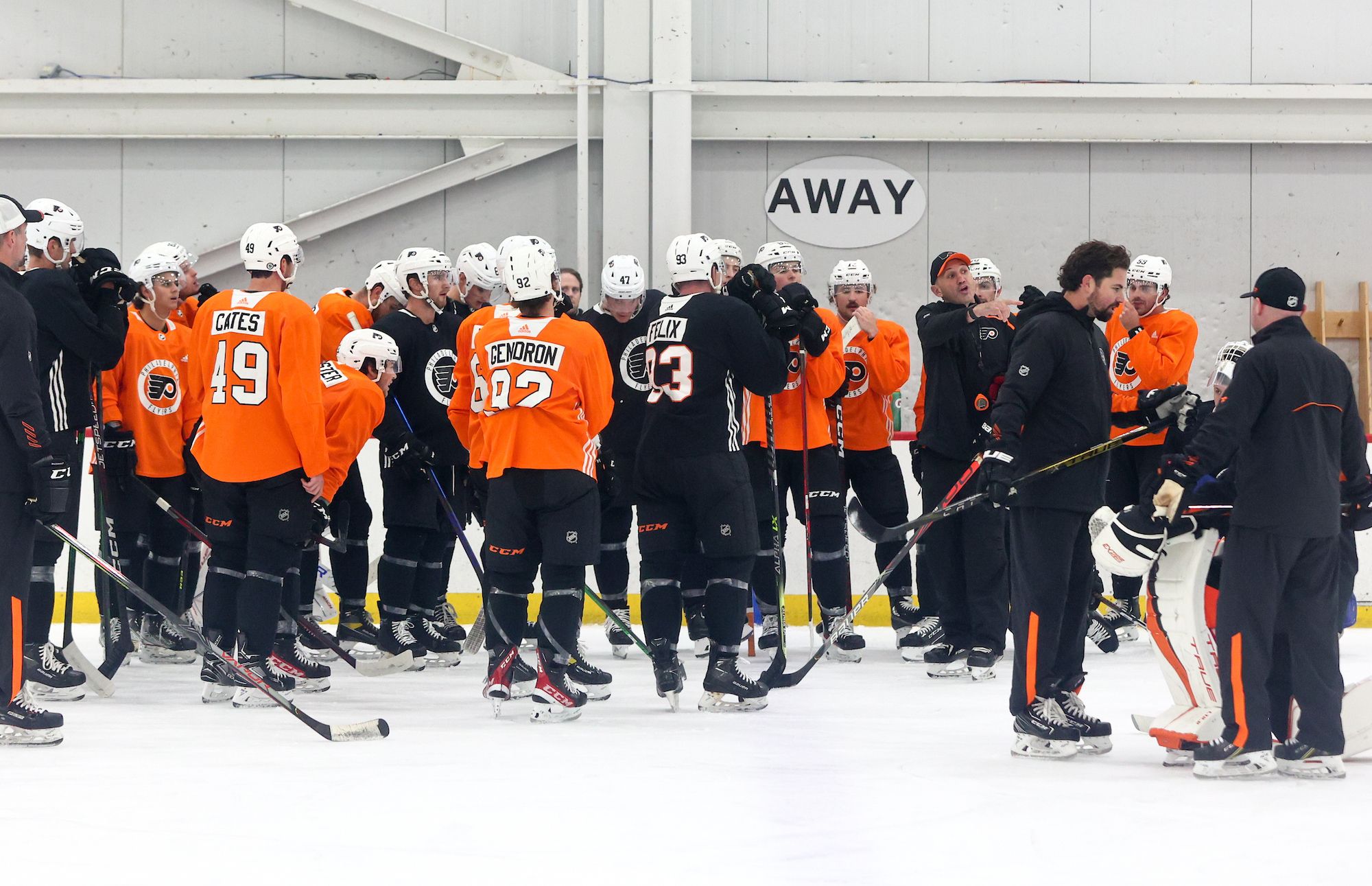Over the course of this week, we’ll evaluate Ron Hextall’s first year on the job as general manager of the Flyers. Today, we’ll define the criteria by which we believe one should be evaluating Hextall for what he’s done so far.
On Tuesday, we’ll talk about the things Hextall’s done that we liked and that give us hope.
On Wednesday, we’ll look at the black marks on Hextall’s first-year record. And on Thursday, we’ll try and wrap everything together and talk about what we want to see this summer and next year.
* * *
It was this week a year ago — on May 7, 2014, a week after the Flyers were eliminated from the Stanley Cup Playoffs in New York — when Ron Hextall was officially named general manager of the Philadelphia Flyers. And it was clear from the outset Hextall — the guy who Paul Holmgren famously said had a Flyers tattoo on his ass — was thrilled to be in the position. He called it his “dream job.”
From the moment he took over, it’s always seemed like Hextall had some sort of idea where this team stands in terms of the big picture. To be sure, most knew that he was walking into a fairly unenviable situation — namely, a middling-at-best team that had a bad defense, several questionable-or-worse contracts, and essentially zero room for short-term growth.
That’s all to say that the fact that the Flyers fell from having the 13th-most points in the league in 2013-14 to the 24th-most in 2014-15, while not good, isn’t necessarily an indictment of Hextall as a general manager. As little as he wants to say it out loud, he seemed to realize from the outset that there were significant flaws within this team, and that this team’s window to contend for a Stanley Cup is currently bolted shut.
So after a year on the job, how do you evaluate the performance of a guy who walked into a position like the one Hextall is in?
In trying to answer that question, I think this year was less about many of the actual moves being made and more about what those moves tell us about his mindset as a general manager. Short of working a few miracles, it never seemed too likely that this team would be very good this year, particularly after Kimmo Timonen’s sudden complication that took him out of the lineup.
This team was right at the salary cap and locked in with a number of undesirable assets — ultimately, not in a position where one realistically could’ve expected it to contend or conduct much of a sell-off.
That’s not a good position for a team to be in. So what I want to be able to take from this year is the confidence that, once some time passes and the Flyers are out of that poor position (which, if we’re lucky, could be as soon as next offseason), Hextall will be able to make the right decisions that will navigate this team back towards being a contender.
Having a plan … and sticking to it
In the year he’s been in charge, there’s been a lot of talk of Hextall having a plan. Build through the draft, think with the long-term in mind, all that stuff. And that’s good! It really is. It’s important for an NHL team to have a plan to make its way back into contention.
It’s also important — much more important, I think — to actually stick to that plan. To actually make the decisions that lead to that plan being successful.
A couple of weeks ago, after firing his general manager, his head coach, and basically everyone below him in his organization, Toronto Maple Leafs president Brendan Shanahan had the following to say about the current status of his organization’s now-clearly-underway rebuild:
Brendan Shanahan: “The challenge is not to come up with the plan. The challenge in Toronto is to stick to it.”
— Chris Johnston (@reporterchris) April 13, 2015
While we are not in Toronto and this is not a Maple Leafs blog, and I don’t think the Flyers need quite the teardown that the Leafs are conducting, I think that same sentiment applies here. And I have two questions about the plan in place here.
First of all: Hextall himself has pretty much said that he agrees with Ed Snider’s assertions that it would be unacceptable to have another year like the one we just saw. Is it possible to make the Flyers a team that can contend next year? Maybe. But is it possible to do that without making aggressive moves that would place potential short-term success ahead of long-term stability, which is exactly what Hextall has said several times he will not do? I just can’t see it.
So can he balance the short-term with the long-term? Or are we going to be stuck with another year or two like this past one for the sake of potential long-term success?
And here’s my other thing about “the plan”: every team has a plan. And while some of them are probably better-founded than others, most of them probably sound pretty good on paper. Draft well, don’t sign bad contracts, think long-term instead of short-term until you’ve got a good reason to think short-term — these are all things that most teams try to do. Making the plan — as Shanahan said above — is the easy part.
What causes teams to fail isn’t not having a plan. It’s either deviating from that plan or making bad decisions while trying to carry it out. Giving out bad contracts, making ill-advised trades, guessing wrong on too many draft picks, etc. The kinds of things no one wants to do but just about everyone ends up doing anyways. Actions speak louder than words, and even the best plans can be undone by bad actions.
As such, there are three things I really care about here:
- Can Hextall and Snider stick to their plan with no speedbumps?
- Can Hextall make the right personnel decisions to ensure that his plan will actually work out?
- What do Hextall’s decisions this year tell us about his ability to do those first two things correctly?
So that’s the lens I think we should examine Hextall’s first year through. Do we think the Scott Hartnell for R.J. Umberger swap — a swap that undeniably left the team worse off on the ice — was a sign of poor talent evaluation, or of a GM who’s looking way into the future? Was the Travis Sanheim pick a sign that we can trust his drafting philosophies? And has he largely stuck to small, low-risk free agency deals because he’s had to, or because that’s actually how he wants to operate?
There are a lot of questions to ask about Ron Hextall’s first year in charge of the Flyers. The key here is what the answer to those questions tell us about him as a general manager. We’ll try and dig more into what those questions and answers are over the course of this week.









